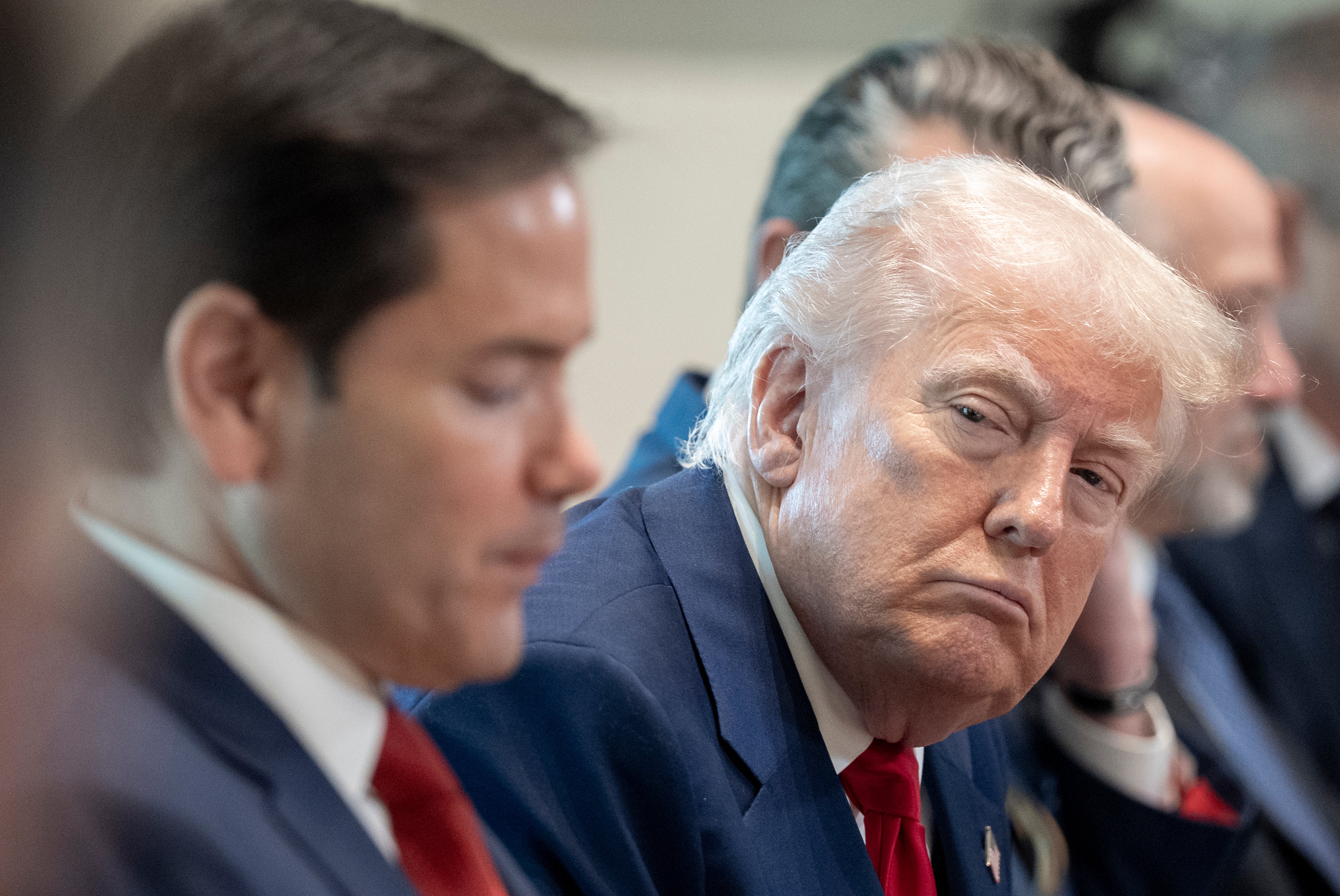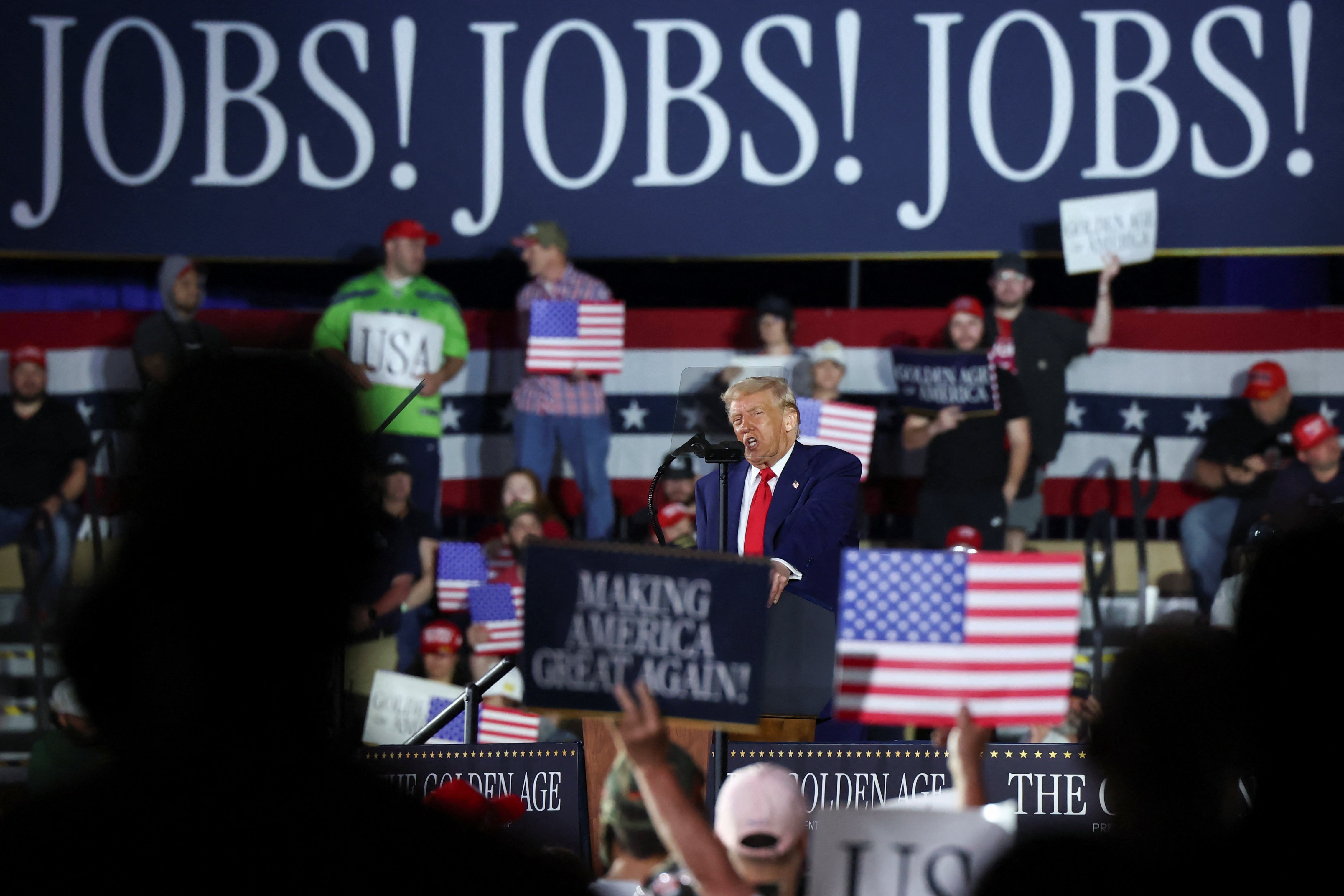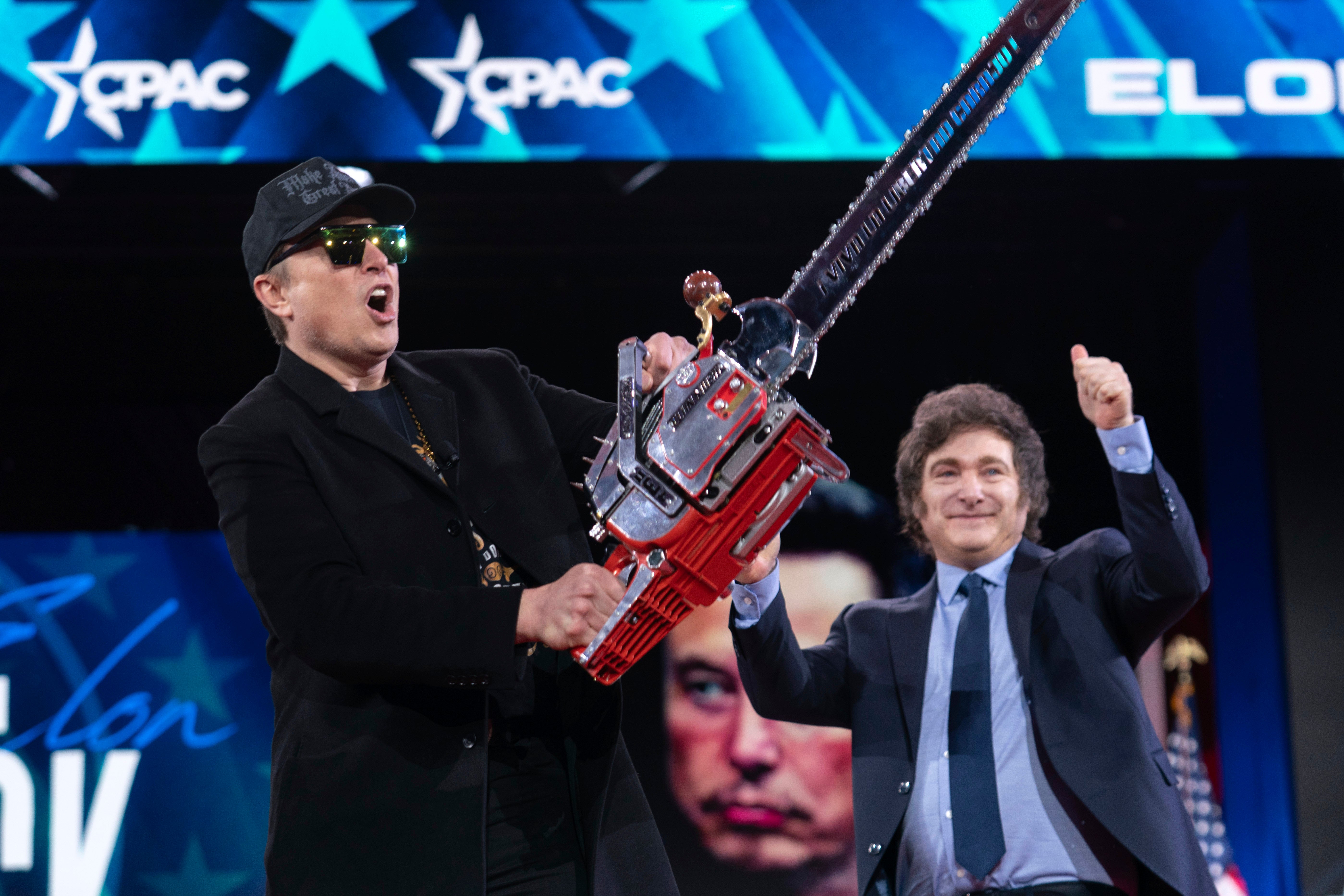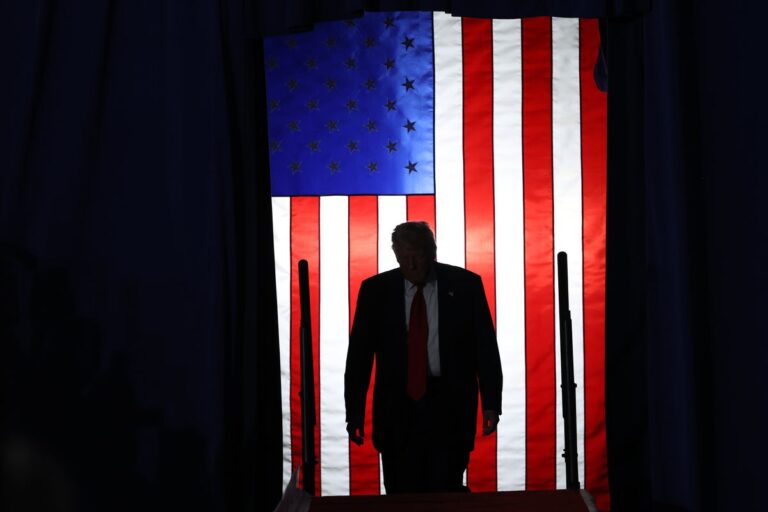While administration officials were taking victory laps on his 100th day in office, Donald Trump was on the phone, berating his friend Jeff Bezos.
Bezos’s Amazon — the world’s second-largest retailer — was reportedly planning to advertise just how much the president’s tariffs were impacting the cost of each item on the platform.
White House Press Secretary Karoline Leavitt called it a “hostile and political act.” After Trump’s call, Amazon publicly shot down the idea, saying it was “never a consideration for the main Amazon site.”
To Trump’s loyalists, the move was the president’s art of the deal at work.
But Tuesday’s episode exposed just how frail Trump himself is against powerful public opposition to his agenda, and how far the White House and his allies will go to prevent the president and Americans from learning about it.

open image in gallery
Harvard University has become a model of institutional defiance against the administration after rejecting a list of demands from the White House stemming from allegations of antisemitism.
More than 500 law firms are backing a lawsuit from Perkins Coie, one of several firms targeted by Trump’s executive orders threatening lawyers and firms tied to his political opponents.
Republicans in Congress returned to their districts in recent weeks to face furious town halls that turned into embarrassing viral moments, prompting many officials to limit their exposure to their own constituents, while Democrats are jockeying for impeachment hearings.
Millions of Americans have hit the streets in big cities and small towns across the country for dozens of protests, five years after nationwide racial justice demonstrations rocked the end of the first Trump administration in the middle of the COVID-19 crisis that paved the way for his loss in the 2020 presidential election.
Now, following the first three months of Trump’s second presidency, after priming the country for an agenda that could upend virtually every aspect of American life, Trump is facing the worst approval ratings of any president within the last 80 years.
It certainly has the administration’s attention, and the attention of Republican lawmakers who are fighting to keep their majority in 2026, according to Donald F. Kettl, a professor emeritus and former dean in the School of Public Policy at the University of Maryland.
“The White House can’t be happy waking up to see a flood of polls that have been released in the last week, because none of these things reflect the kinds of effects they wanted,” he told The Independent. “You still have people cheering and yelling and screaming at the rallies, but the rallies are clearly only a snapshot.”
The 100 days threshold isn’t just a gut check but a “fundamental pivot” for change within the administration, he said.
What happens next with tariffs and the economy more broadly, in budget negotiations with Congress, and with summary deportations and a mountain of legal challenges to the Trump agenda, will pave the way for even more “opportunities for political blowback and for mobilizing opposition,” he said.
“It’s going to be a lot harder to keep the coalition together to keep the momentum going,” Kettl said.
Retribution aside, that opposition — and defense of the court and Constitution — appears to be the winning message where the administration is otherwise failing. “Flooding the zone” may give the administration short-term wins, but they’re creating real harm.
“There are those who have said that this presidency is in trouble, and it’s too early to say that, but it is important to say that keeping his presidency together will get more difficult as we get into more of the details,” according to Kettl.

open image in gallery
An aggressive, heavy-handed agenda disguises the dysfunction that the president and his allies are waving off as a corrupt system attacking him. His avalanche of executive orders has been met with restraining orders issued by judges from across the ideological and political spectrum. The administration’s admission of an “error” that resulted in a Salvadoran father’s removal to a brutal prison — which all nine Supreme Court justices agreed was “illegal” — is forcing government attorneys into courts to defy them.
The administration is advancing a unilateral executive theory granting the presidency effective control over the federal government, while supportive media and echo chambers on X and Truth Social insulate him against public opposition.
“Things worked out exactly like they should,” Stephen Miller told Fox News on Tuesday following news of Trump’s call with Amazon.
Days earlier, Miller was in the Oval Office, yelling at reporters in front of the president, claiming that the Supreme Court did not just unanimously order the government to “facilitate” the return of a wrongly deported Salvadoran man living in Maryland.
Americans were asking for significant immigration reform. Trump instead swiftly implemented a deportation policy driven by mass disappearances, the denial of due process and summary removals without any recourse, and in apparent defiance of the judiciary and checks and balances.
Trump mentioned tariffs dozens of times during his campaign, and he saw his idea as an endorsement to use them indiscriminately. Trump slapped ludicrously high taxes on virtually every imported good, swinging wildly from pauses and then hikes and pauses again, all the while throwing global markets into chaos. Aides said he was using them as leverage, while others said he was serious.
Americans wanted to cut out the bloat in federal spending. Then Trump gave the world’s richest man, Elon Musk, a literal and figurative chainsaw, moving from agency to agency, and then deployed a team to siphon Social Security and taxpayer information and to seek out undocumented immigrants.
Protests against Musk’s involvement in the Trump administration and weaponization of the Department of Government Efficiency against the federal workforce are also now a “risk factor” for his own Tesla, according to documents filed with the federal government.
Tesla’s latest filing with the Securities and Exchange Commission suggests the company fears that the protests — and Musk’s actions — are a major liability for the brand and business, while state treasurers and local governments depending on stable investments in the company are worried about the future of their economies.

open image in gallery
Last month, Leavitt attacked a journalist who corrected her false claim that tariffs are “a tax cut for the American people.” When that journalist told her, from his own experience, how buyers and consumers eat the cost of those tariffs, she called his remarks “insulting.”
In a call with auto executives last month, Trump warned them against raising prices because of tariffs, leaving them rattled and fearing retribution from the administration if they did. On Tuesday, Trump signed an executive order rolling back tariffs targeting automakers.
Major retailers such as Walmart, Target and Home Depot have privately warned the White House that Trump’s tariff agenda could mean empty shelves, and manufacturers are warning Americans upfront that costs are going up. Senate Minority Leader Chuck Schumer suggested other businesses should do just that, and make clear why it’s happening.
“To the large businesses that sell to consumers, I say show your customers how much tariffs are hurting in their pocketbook,” he said in remarks on the Senate floor on Tuesday. “People deserve to know the impact tariffs have on their finances.”
E-commerce websites Shein and Temu, both of which source most of their products from China, have already implemented changes to their pricing due to tariffs; Temu introduced an import charge displayed at checkout.
After pausing factory orders in recent weeks, Walmart and Target are reportedly resuming business with some of their Chinese suppliers, a move likely to avoid empty shelves and warehouses should tariffs derail supply chains.
“The fact that the economic growth is softening and that inflation is not under control is something that will clearly damage the administration going forward,” Kettl told The Independent. “Because if tariffs — the thing that Trump can’t seem to stop talking about — are something that undermines the thing he promised most to do, then they’ve got a problem.”


